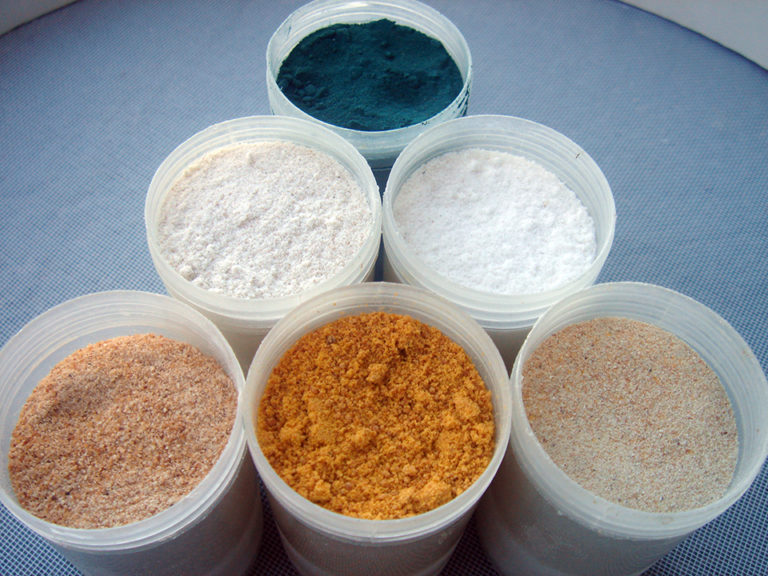
Health & Welfare
Soy-based diets support white shrimp performance
A study evaluated Pacific white shrimp given plant protein-based diets with varied lipid content and soybean meal:soy protein concentrate ratios.
Health & Welfare
In a 10-week study of nursery-reared Pacific white shrimp performance, the inclusion of Spirulina meal allowed reduction of fishmeal up to 25 percent with no detrimental effect on shrimp growth performance.

Health & Welfare
A study evaluated Pacific white shrimp given plant protein-based diets with varied lipid content and soybean meal:soy protein concentrate ratios.
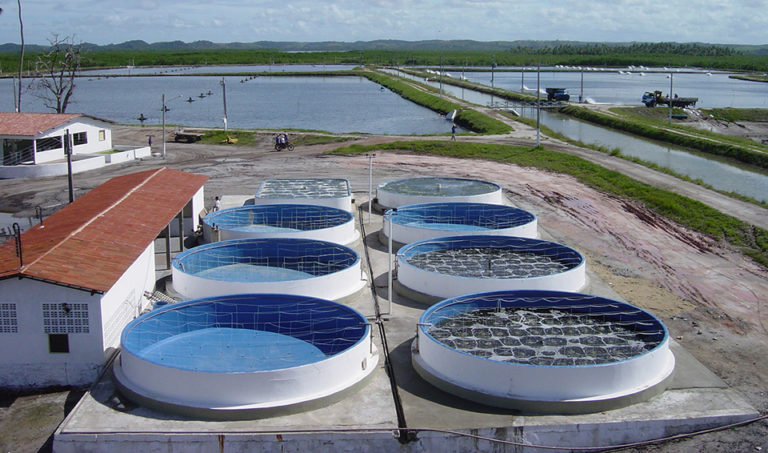
Health & Welfare
Intensive nursery systems are an extension of hatcheries to acclimate postlarvae to farm conditions and assess quality and health prior to pond stocking.
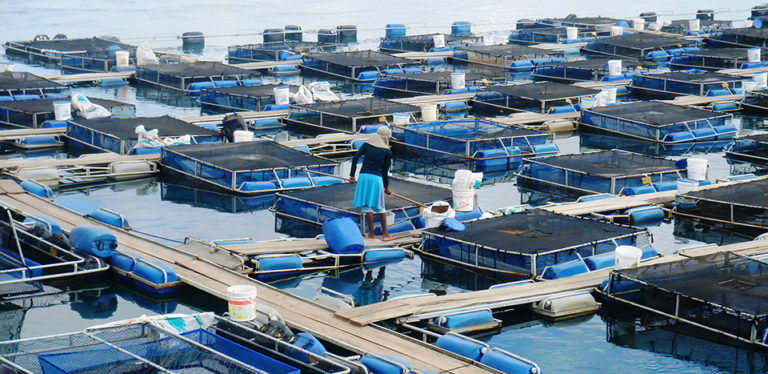
Health & Welfare
Much of Brazil’s expanding tilapia aquaculture takes place in floating cages with sturdy frames and nets made from plastic-coated steel or polypropylene.
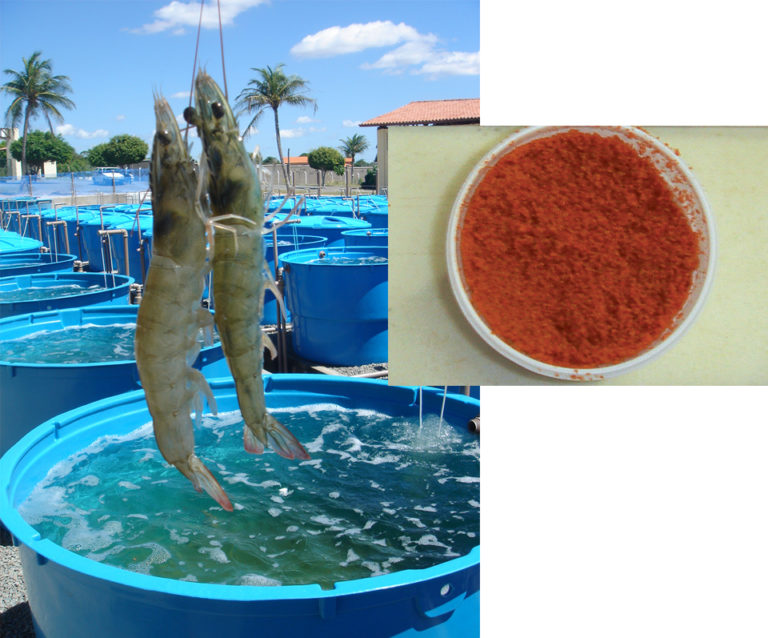
Health & Welfare
Due to its high protein and highly unsaturated fatty acids content, krill meal can be an effective ingredient in aquafeed.
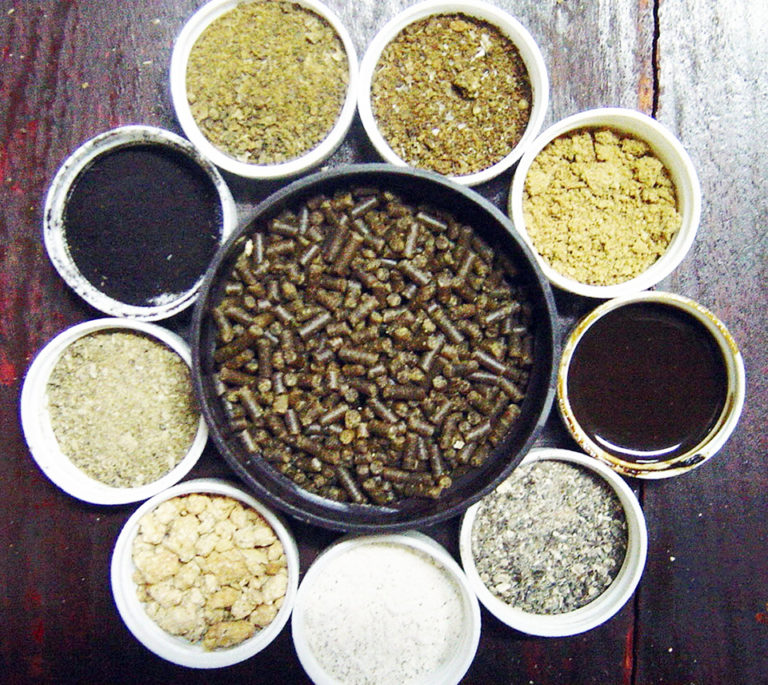
Aquafeeds
The required level of fishmeal in white shrimp diets can be reduced to 5 percent through substitution as long as fish oil content is kept at 2 percent.
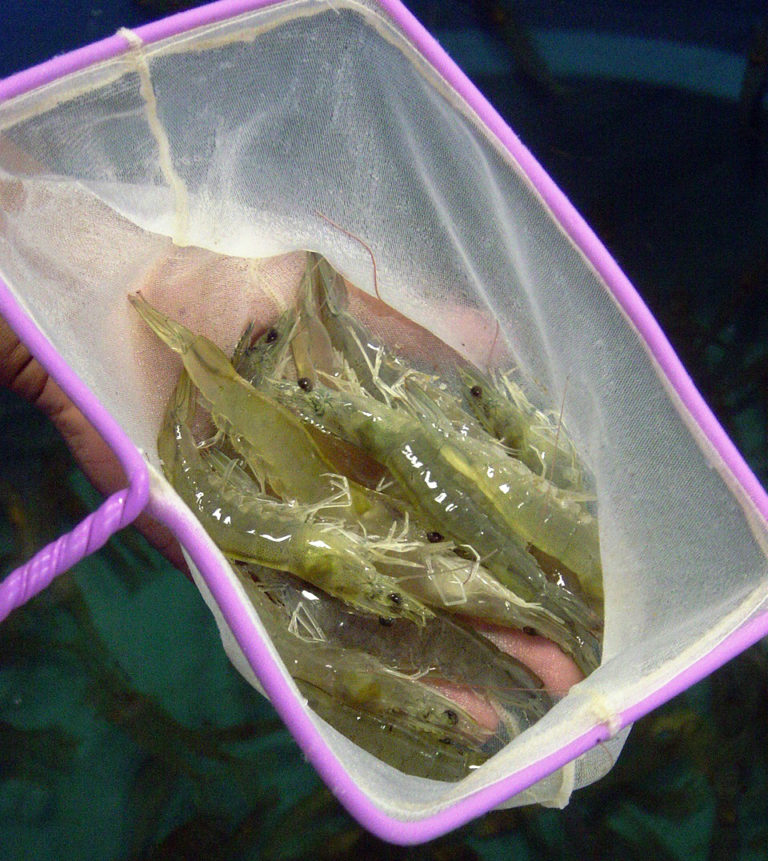
Aquafeeds
In a study, the authors evaluated the performance of juvenile white shrimp grown at high density and fed diets with varying levels of methionine. Trends toward improvements in feed intake were observed for diets with reduced fishmeal and HMTBa supplementation.
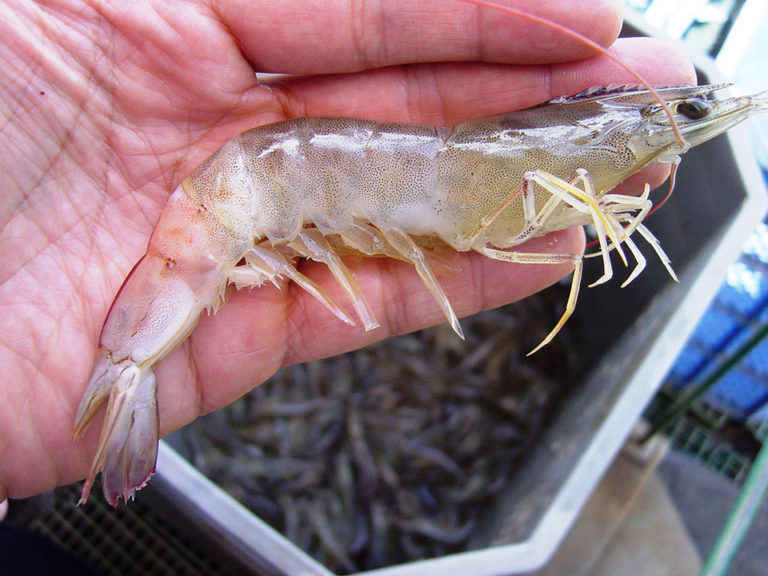
Health & Welfare
Authors examined whether beta-glucans extracted from bakers yeast could improve the survival and growth of Pacific white shrimp challenged with infectious myonecrosis virus.
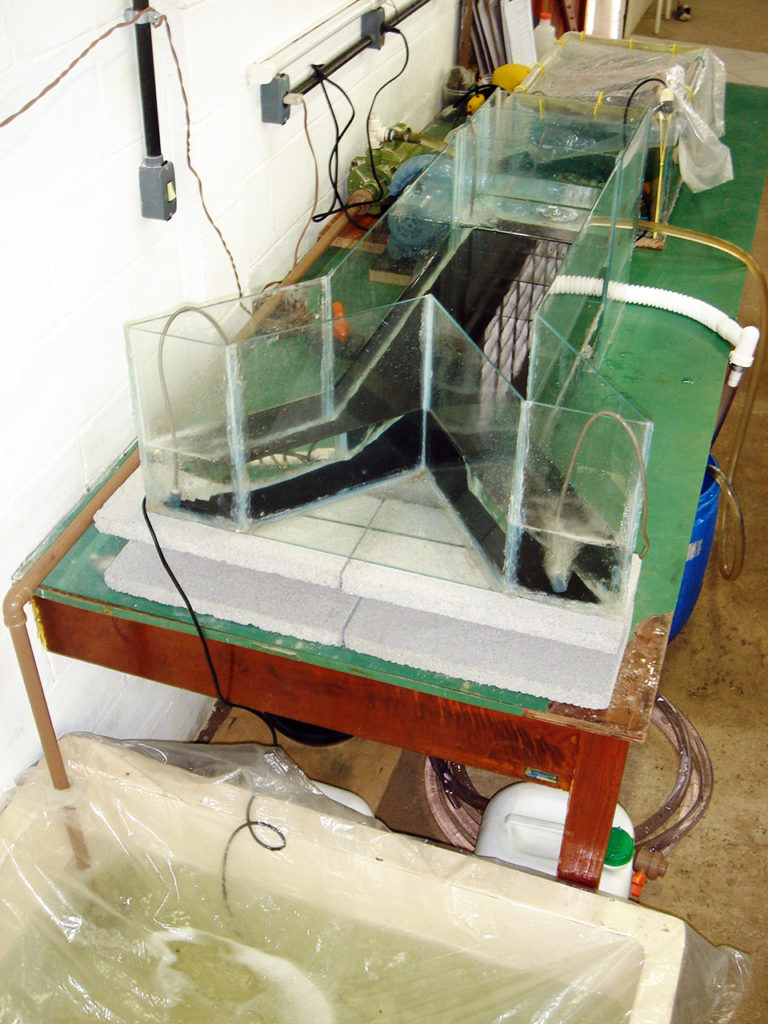
Aquafeeds
A recent study in Brazil tested the efficacy of nine commercial feed attractants for Litopenaeus vannamei. Condensed fish-soluble protein, an amino acid complex with digested bivalve mollusk, and whole squid protein hydrolysate stimulated the highest feeding responses.

Aquafeeds
The authors conducted a study to determine how reducing the protein content of a diet would affect the growth performance of L. vannamei reared in an experimental microbial floc culture system.
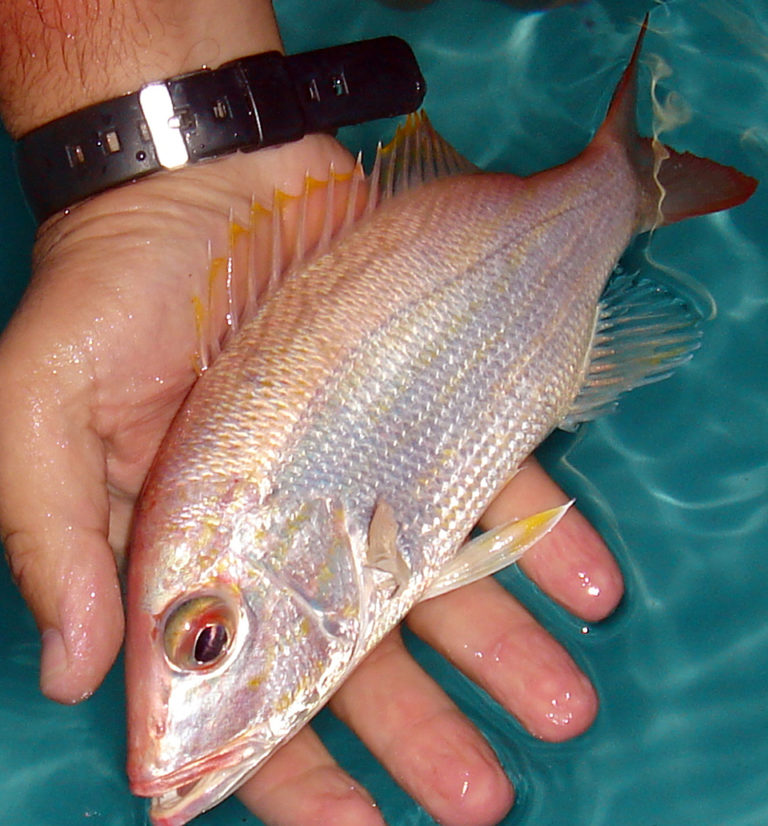
Aquafeeds
A study in Brazil indicated that mutton snappers, a high-value species that readily accepts artificial food, can grow well on diets containing high-quality plant proteins such as soy protein concentrate.

Health & Welfare
A study showed that lipid source and DHA and EPA levels in feeds can influence the growth performance and tail fatty acid profiles of L. vannamei farmed under hypersaline conditions.
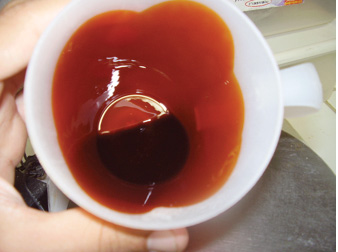
Intelligence
A feed enrichment study showed that dietary lipid source and content of EPA and DHA in the diets of shrimp influenced the fatty acid profiles of their tails.
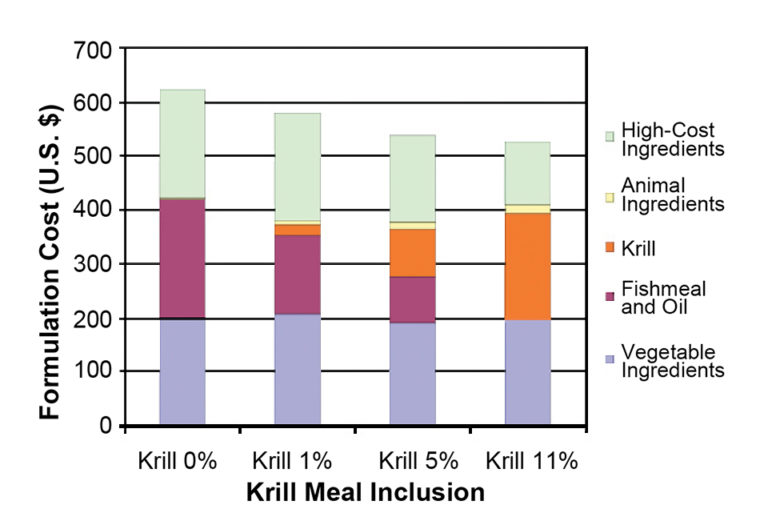
Aquafeeds
In a study, krill meal incorporated into shrimp diets replaced fishmeal and soy lecithin with no significant effect on shrimp performance.
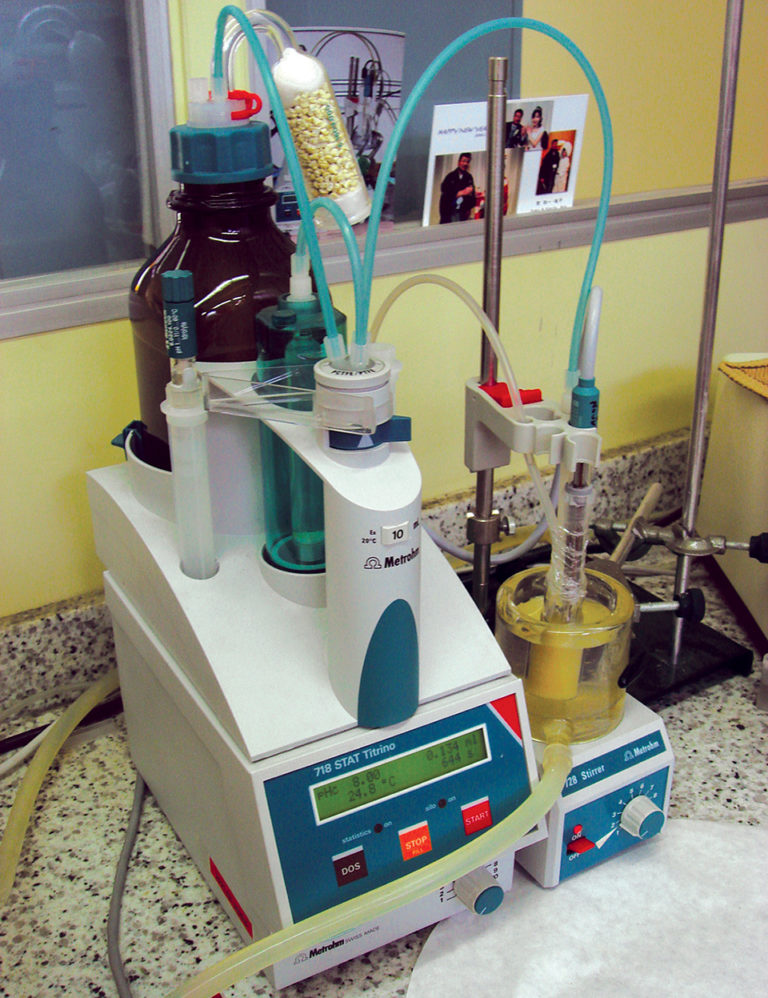
Health & Welfare
Shrimp diets need amino acid composition, balance and availability. Protein digestive capacity appears related to both nutrient availability and composition in feed.
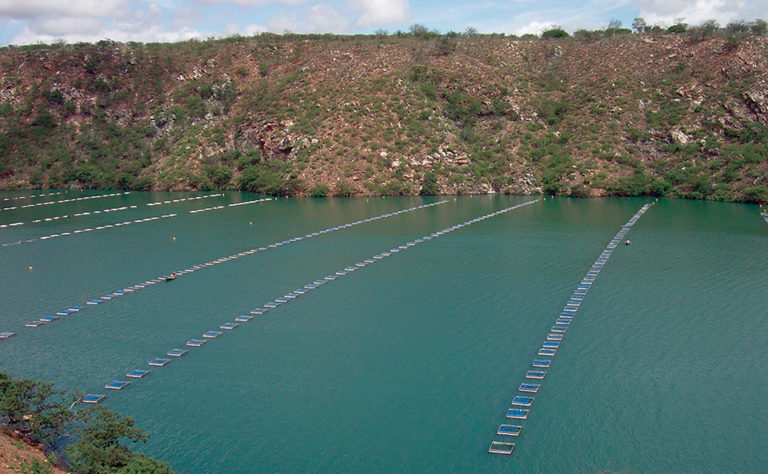
Health & Welfare
A Brazilian study demonstrated it is cost-competitive to grow Chitralada tilapia up to 1 kg in small cages via intensive culture.